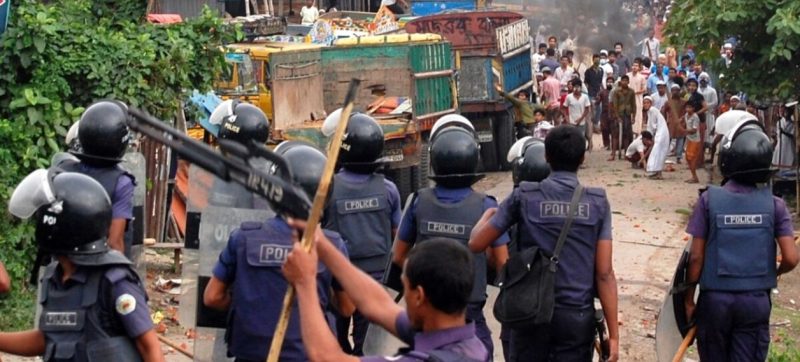Bangladesh has accused foreign arms of fueling violence in the country’s southeast, where deadly clashes erupted in the Chittagong Hill Tracts. The unrest, which broke out on Sunday, left three people dead and several others injured.
Interior Minister Asaduzzaman Khan said on Monday that weapons from outside Bangladesh are worsening tensions in the border region with India. He stressed that authorities are working to track the source of these arms and prevent more bloodshed.
The clashes began when security forces blocked protesters demonstrating against the alleged rape of a woman. What followed quickly turned violent. Protesters accused troops of opening fire, while the army blamed rebels for triggering the chaos.
The Chittagong Hill Tracts, home to several ethnic minority groups, has long been a hotspot for tension. Demands for greater rights and autonomy have often clashed with the government’s security efforts, leading to recurring outbreaks of violence.
According to local officials, the situation remains tense but under control. Security has been tightened in key areas, and additional forces have been deployed to prevent further unrest.
The deaths sparked anger among local communities, who are demanding justice and accountability. Human rights groups have also called for an independent investigation into the use of force during the protests.
The government insists that outside interference is making the problem worse. By pointing to foreign weapons, officials are linking the violence to larger regional issues that extend beyond Bangladesh’s borders. This raises concerns about cross-border smuggling and the role of armed groups operating in remote areas.
The tragedy comes at a time when Bangladesh is under pressure to maintain political stability and public confidence. For many, the violence underscores the need for both tighter border security and meaningful dialogue with local communities in the hill tracts.
The unrest also reflects a challenge faced by governments worldwide: how to balance security with public trust. In Britain, for example, the ruling Labour Party is facing its own moment of soul-searching after one year in power as it struggles to reconnect with traditional supporters. Both cases highlight how accountability and confidence remain central to governance.
For Bangladesh, the focus now is on preventing further escalation. Whether through stronger border controls, new security measures, or dialogue with minority groups, the government faces urgent pressure to act.
As investigations continue, families of the victims are demanding answers. The coming days will determine whether this deadly flare-up becomes another cycle of violence or a turning point toward lasting peace in the troubled hill region.







